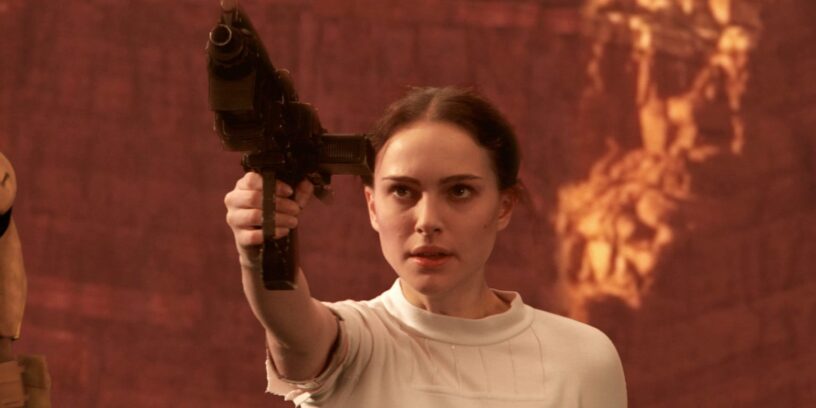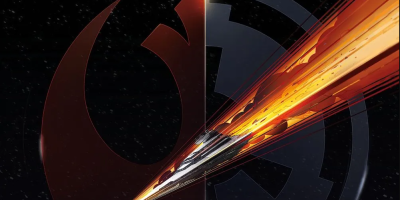Her Royal Majesty/Highness and later Senator, Padmé Amidala, is simply not given enough credit in the Star Wars universe.
Say what you will about Natalie Portman’s portrayal of Padmé in the prequel trilogy (I would argue that she did the best with what she was given; we all know Lucas is a bad dialogue writer). But when you truly look at her character and everything she does in Star Wars, you realize there is something much deeper there, as is this case with many of the major characters in the series.
The Ultimate Public Servant
Padmé dedicated all of her career to public service. She is elected Queen of Naboo at just the age of 14. Can you imagine ruling an entire planet at such a young age?
And at the age of 14, Padmé is forced to liberate her planet from an aggressive trade franchise that had invaded her planet and enslaved its people, with many of them dying (more on her actions later).
Padmé even extends diplomacy to the Gungans, who are historically at odds with the people of Naboo. Thanks to her negotiating skills, Padmé is able to mend the fracture and secures the support of the Gungans in retaking her planet.
After her term as Queen was over, her successor asked Padmé to serve Naboo in the Senate. In her own words, Padmé “couldn’t refuse her” and she served her planet until the end of her life, and indeed, the end of the Republic.
Padmé’s devotion to the Republic and to democracy was so strong that she became a target for it. In Attack of the Clones, Count Dooku targets Padmé because of Padmé’s opposition to the Military Creation Act, which would create an Army of the Republic. Unfortunately, Padmé’s goals as the leader of the opposition to the act as the Republic went to war, ironically because Padmé’s representative in the Senate, Jar Jar Binks, called for the Chancellor to be given Emergency Powers to create an army.
During the Clone Wars, Padmé attempts to remain diplomatic, despite often having to fight in battle. She is seen in numerous episodes of the Clone Wars series attempting to persuade more moderate Separtist senators to return to the Republic and let diplomacy resume.
In her final days, Padmé had to sit back and watch as the Republic crumbled around her. She saw Palpatine reorganize the Republic into the Galactic Empire, declaring himself as the dictatorial Emperor. Padmé even muses on the loss of democracy when Palpatine declares the Empire: “So this is how liberty dies: with thunderous applause.”
The Original Rebel
Padmé is the original rebel in Star Wars, or at least in the Skywalker Saga.
At the age of 14, she leads a military battle to fight off the oppressive Trade Federation in order to liberate Naboo from Federation control. She does this in spite of her love of democracy and her faith in the Republic. She goes against the Republic’s way of handling the conflict because she saw how bureaucratic the Republic had become under Chancellor Valorum, which is part of the reason she pushed for the vote of no confidence to remove him.
In deleted scenes of Revenge of the Sith, Padmé is depicted along with a group of senators who are part of the Delegation of 2000. This Delegation consisted of 2,000 Republic Senators, who were concerned by the way Chancellor Palpatine had handled the Clone Wars, and were weary of the increasing among of power Palpatine had accumulated.
During a series of meetings, the Delegation created a petition that formally protested Palpatine’s actions during the war and demanded he return his emergency powers he had claimed as soon as the war was over.
Many members of the Delegation of 2000, including Bail Organa and Mon Mothma, would later become leaders of the Alliance to Restore the Republic, which Padmé’s children both served in. Combine all of those details, and you can’t deny that Padmé would have rebelled against the Empire from Day One if she had lived.
Cause of Death
Some try to simply explain away Padmé’s death in Revenge of the Sith. Some say it’s her heart being broken by Anakin’s descent to the dark side. Others say the stress of childbirth did it. There is even a theory that Palpatine used the Force from afar to end Padmé’s life in order to bind Vader to him.
But, her death is really a combination of factors. Her death can easily be attributed to severe emotional trauma that is experienced in her final days of living.
Think about it:
For three years, Padmé had watched as the galaxy waged war with itself. She saw people die for their causes, including close friends.
In the final days of the Clone Wars, she started to lose faith in the Republic, even asking Anakin if the democracy that they thought they were fighting for no longer existed. As a lifelong public servant, Padmé was a true believer in the ways of the Republic. And in the end, she had to watch, helplessly, as the government she served and trusted in was destroyed, and it was done with enthusiasm on the part of her fellow senators.
Immediately after the declaration of the Empire, Obi-Wan informs Padmé of Anakin’s fall to the Dark Side. Padmé doesn’t want to believe her husband could become something so evil, so she rushes to Mustafar to see him, only to find out Obi-Wan was right. Some of her last words to Anakin are, “You’re breaking my heart. You’re going down a path I can’t follow,” meaning she wasn’t going to follow her husband’s dark path, no matter how much he loved her. And then Anakin lashes out at her and chokes her, causing Padmé to realize he has become evil.
And yes, the stress of giving childbirth likely contributed to her death too. But think about everything else she endured right before giving birth. Anyone would crack at that much emotional trauma in such a short space of time. Death was the easy way out for Padmé, rather than having to endure a life without Anakin to raise their children under an oppressive government that was everything Padmé opposed. And in truth, she knew there was a chance her husband could be saved, with her dying words to Obi-Wan declaring “there’s good him.”
All in all, Padmé is one hell of a character who deserves a lot more credit for what she brings to the Star Wars story. And so does Natalie Portman for portraying Padmé at such a young age (she even had to miss the premiere of The Phantom Menace to take high school finals) and giving it her all with what she had.




Leave a Reply